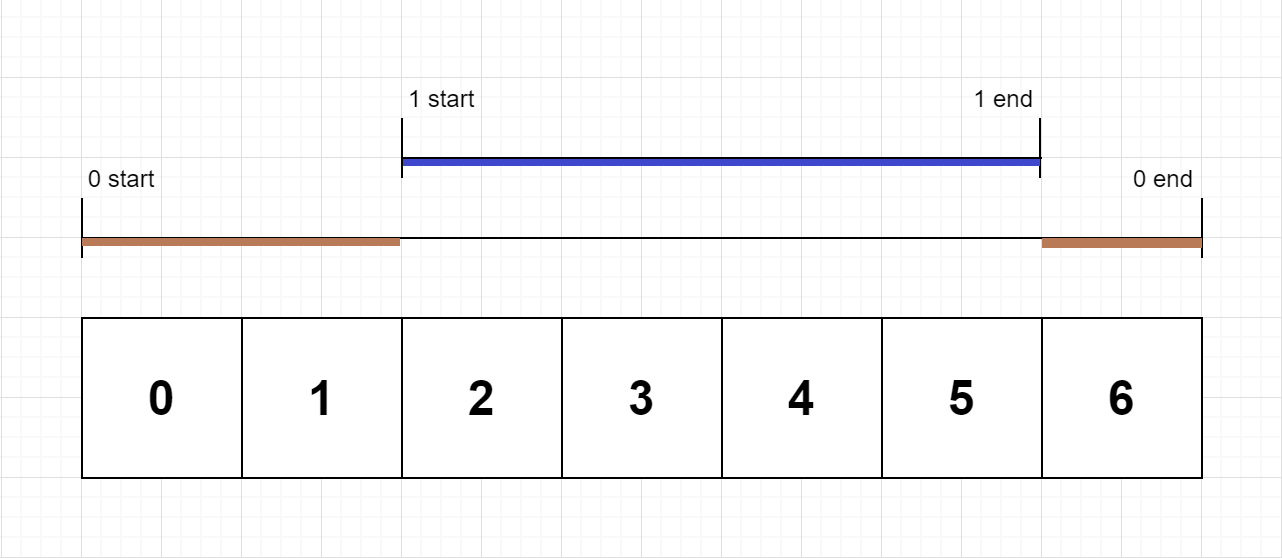On a single-threaded CPU, we execute a program containing n functions. Each function has a unique ID between 0 and n-1.
Function calls are stored in a call stack: when a function call starts, its ID is pushed onto the stack, and when a function call ends, its ID is popped off the stack. The function whose ID is at the top of the stack is the current function being executed. Each time a function starts or ends, we write a log with the ID, whether it started or ended, and the timestamp.
You are given a list logs, where logs[i] represents the ith log message formatted as a string "{function_id}:{"start" | "end"}:{timestamp}". For example, "0:start:3" means a function call with function ID 0 started at the beginning of timestamp 3, and "1:end:2" means a function call with function ID 1 ended at the end of timestamp 2. Note that a function can be called multiple times, possibly recursively.
A function's exclusive time is the sum of execution times for all function calls in the program. For example, if a function is called twice, one call executing for 2 time units and another call executing for 1 time unit, the exclusive time is 2 + 1 = 3.
Return the exclusive time of each function in an array, where the value at the ith index represents the exclusive time for the function with ID i.

Input: n = 2, logs = ["0:start:0","1:start:2","1:end:5","0:end:6"]
Output: [3,4]
Explanation:
Function 0 starts at the beginning of time 0, then it executes 2 for units of time and reaches the end of time 1.
Function 1 starts at the beginning of time 2, executes for 4 units of time, and ends at the end of time 5.
Function 0 resumes execution at the beginning of time 6 and executes for 1 unit of time.
So function 0 spends 2 + 1 = 3 units of total time executing, and function 1 spends 4 units of total time executing.
Example 2:
Input: n = 1, logs = ["0:start:0","0:start:2","0:end:5","0:start:6","0:end:6","0:end:7"]
Output: [8]
Explanation:
Function 0 starts at the beginning of time 0, executes for 2 units of time, and recursively calls itself.
Function 0 (recursive call) starts at the beginning of time 2 and executes for 4 units of time.
Function 0 (initial call) resumes execution then immediately calls itself again.
Function 0 (2nd recursive call) starts at the beginning of time 6 and executes for 1 unit of time.
Function 0 (initial call) resumes execution at the beginning of time 7 and executes for 1 unit of time.
So function 0 spends 2 + 4 + 1 + 1 = 8 units of total time executing.
Example 3:
Input: n = 2, logs = ["0:start:0","0:start:2","0:end:5","1:start:6","1:end:6","0:end:7"]
Output: [7,1]
Explanation:
Function 0 starts at the beginning of time 0, executes for 2 units of time, and recursively calls itself.
Function 0 (recursive call) starts at the beginning of time 2 and executes for 4 units of time.
Function 0 (initial call) resumes execution then immediately calls function 1.
Function 1 starts at the beginning of time 6, executes 1 units of time, and ends at the end of time 6.
Function 0 resumes execution at the beginning of time 6 and executes for 2 units of time.
So function 0 spends 2 + 4 + 1 = 7 units of total time executing, and function 1 spends 1 unit of total time executing.
Example 4:
Input: n = 2, logs = ["0:start:0","0:start:2","0:end:5","1:start:7","1:end:7","0:end:8"]
Output: [8,1]
Example 5:
Input: n = 1, logs = ["0:start:0","0:end:0"]
Output: [1]
Constraints:
1 <= n <= 1001 <= logs.length <= 5000 <= function_id < n0 <= timestamp <= 10^9- No two start events will happen at the same timestamp.
- No two end events will happen at the same timestamp.
- Each function has an
"end"log for each"start"log.
single-thread CPU 가 프로그램을 스케쥴링하는 방식을 모방한 문제이다. CPU 가 function 을 실행할때마다 call stack 에 function 의 정보들이 저장되게 되며, 순차적으로 실행될때마다 스택에서 제외되게 된다.
이때 각 function 의 ID 마다 실행되는 시간을 추적하여 저장하게끔 되어있다. 단 주의해야할 점은 recursive call 이 일어나는 경우인데, recursive call 이 같은 function 에서 일어나는 경우 같은 ID 의 수행시간에 더해지게 된다.
나는 이 문제를 stack 을 이용해서 풀었는데, 각 pair 마다 start 시간과, 하위 child 의 수행 시간을 가지고 있게 된다. 그러면 stack 의 제일 위에 있는 function 의 수행시간은 호출이 끝난 시간 - 호출이 시작한 시간 - child function 의 수행시간 이 된다.
class Solution {
public int[] exclusiveTime(int n, List<String> logs) {
int [] res = new int[n];
Stack<Pair> stack = new Stack<>();
for (String log : logs) {
String [] split = log.split(":");
int id = Integer.valueOf(split[0]);
String op = split[1];
int time = Integer.valueOf(split[2]);
if (op.equals("start")) {
stack.add(new Pair(time, 0));
} else {
Pair pop = stack.pop();
int executeTime = time - pop.start + 1 - pop.child;
res[id] += executeTime;
if (stack.isEmpty() == false) {
Pair correctPair = stack.pop();
correctPair.child += executeTime + pop.child;
stack.add(correctPair);
}
}
}
return res;
}
static class Pair {
int start;
int child;
public Pair(int start, int child) {
this.start = start;
this.child = child;
}
}
}'Algorithm' 카테고리의 다른 글
| [leetcode] 127. Word Ladder (0) | 2021.03.08 |
|---|---|
| [leetcode] 588. Design In-Memory File System (0) | 2021.03.03 |
| [leetcode] 1423. Maximum Points You Can Obtain from Cards (0) | 2021.02.12 |
| [leetcode] 210. Course Schedule II (0) | 2021.02.08 |
| [leetcode] 211. Design Add and Search Words Data Structure (0) | 2021.02.07 |

